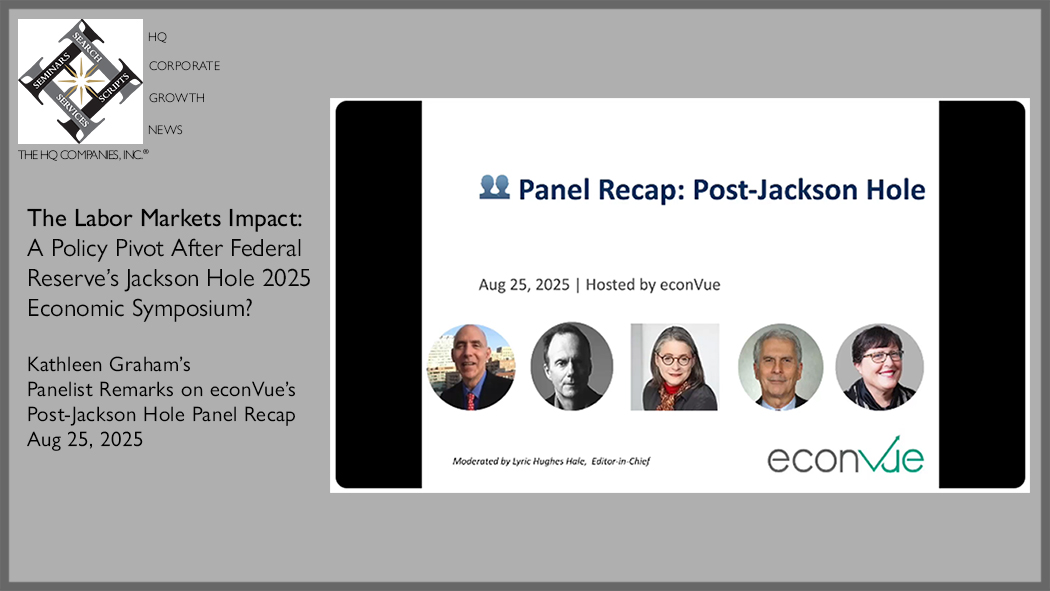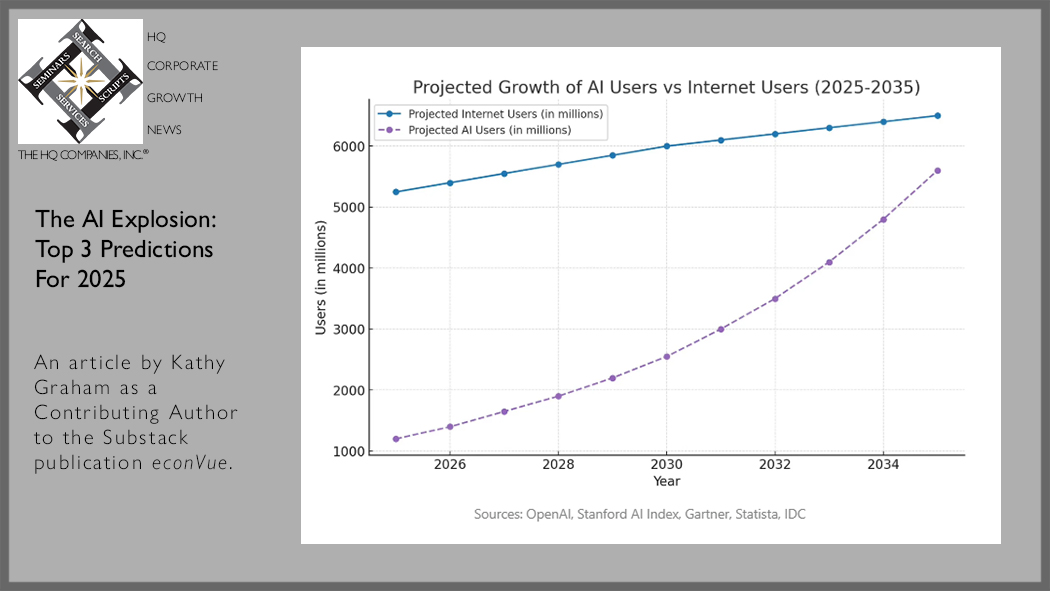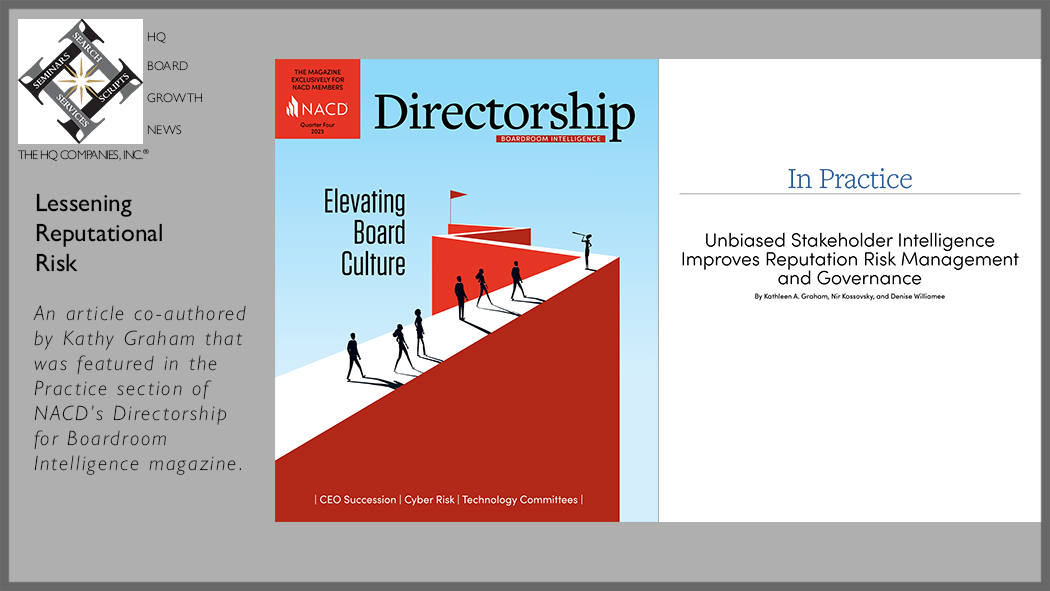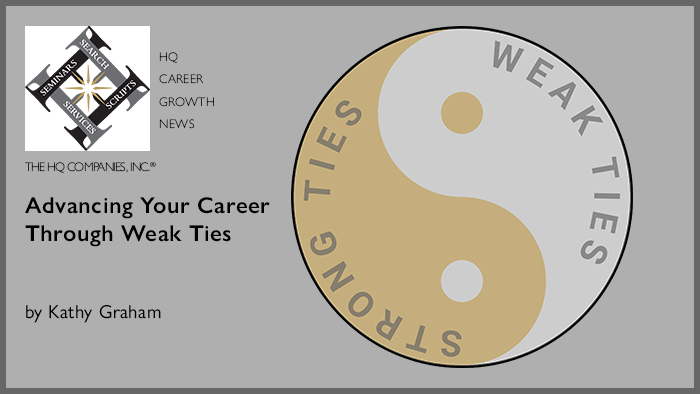
Download this article.
In this world of purportedly less federal oversight and much uncertainty, expectations of fewer corporate compliance programs have not occurred.
Instead, companies across all sectors and sizes have either kept their existing compliance policies in place or actually enhanced them to address their top concerns in this dynamic period of uncertainty.

Download this article.
With much change, new opportunities appear because the status quo has been altered, leaving paths open to some phenomenal opportunities.
The question this article explores is how to determine what is the optimal choice for you and how to pursue it now.
Download this article as a PDF file.
Download the Summary Infographic.
On October 12, 2025, Kathleen was a panelist on BOARD BOUND: A Strategic Guide to Landing Your 1st (& Next) Board Role at the NACD’s Annual Summit national conference in Washington, DC. There was much interest in her description of weak ties usefulness in identifying/securing board opportunities.
After reading this article, please read Dorlisa Flur’s The Magic Matrix: Purposeful Networking to Land Your Board Seat as it’s an excellent example of weak ties in action.

Download this article.
Kathleen Graham’s Panelist Remarks During econVue's 8/25/25 Panel Presentation
These topics covered at the Jackson Hole 2025 Economic Symposium all involve factors that impact people significantly AND are all topics that are in flux currently, i.e., major impactors on people’s lives where what the outcome/direction will be is currently unknown. The question then becomes: how will people respond to such uncertainty in the near term? This article covers likely responses from US employers and US employees.

Download this article.
Kathy Graham was requested by econVue to join as a Contributing Author and Panelist. econVue is a global consortium of economic, geopolitical experts from a wide range of specialties who discuss trending issues. econVue is also one of the top Substack thought leaders in terms of subscription numbers.
Kathy's Top 3 Predictions for 2025, which was all about The AI Explosion, was published on econVue on 1/16/2025. It turned out to be pretty timely given the news that arrived a week later about China's DeepSeek AI.
Kathy's predictions focus on:
1.
2.
3.

Download this article as a PDF file.
Download the Summary Infographic.
1. The risk of unmet stakeholder expectations is incinerating business value.
2. Enterprise risk professionals recognize that it is vital to understand the expectations of stakeholders, which is only possible via the reporting of knowledgeable staff who have their fingers on the pulses of those stakeholders. These critical reporting processes are vulnerable to human frailties, such as the biases of management.
3. There is a path to mitigate human capital systemic bias, ensuring more reliable enterprise intelligence for the purposes of reputation risk management. This path is built around three core actions: ...


